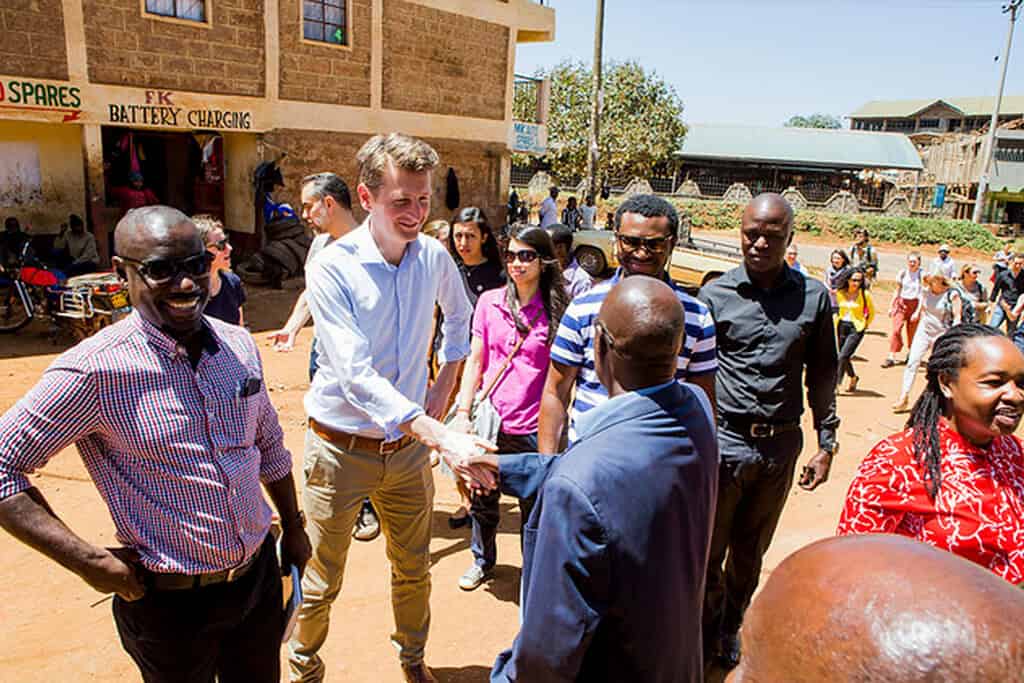Delivering for the Future of Smallholder Farmers

- Blog
- Agriculture
Smallholder farmers, as defined by the United Nations Food and Agriculture Organization (FAO), are farmers who own small-based plots of land, typically 2 hectares or less, on which they grow subsistence crops and one or two cash crops relying almost exclusively on family labor. According to the FAO, four-fifths of the developing world’s food is a product of small-sized farms, and yet small holder farmers make up the majority of people living in absolute poverty, and half of the world’s undernourished people.
This link between farming and poverty leads to low productivity, unreliable supply chains, and the stark reality that those that feed the world are likely to face hunger themselves. In addition, smallholders increasingly face the threats of unpredictable weather and climate change, on top of the day-to-day challenges of producing the yields they need to make ends meet. As stakeholders in this ecosystem, it is no longer enough to focus our impact on increasing farmer yields and incomes. With the pervasive struggles of smallholder farmers, in order to truly protect and bring them out of poverty we must also focus on protecting farmer assets and adapting farming practices to build up resilience to climate change and other uncertainties in agricultural markets.
In January 2018, Acumen convened over one hundred leaders from across the corporate and social enterprise spheres, as well as impact investors and thought leaders, in Nairobi, Kenya for Acumen’s fifth annual Collaboration Summit to discuss and share examples of how these stakeholders are redefining aspects of their business to prioritize the issues that farmers face. The event was made possible with support from EY, Dow, Dubai Expo, GE and Sainsbury’s. What became clear through three days of thought provoking discussions was that it will take true leadership and collaboration across an ecosystem of players to push against the status quo and create change for smallholders.
John Waibochi of Virtual City, a company that offers mobile technology to help East Africa’s farmers track their production and payments to secure fair prices, remarked, “an inclusive supply chain is one that allows movement of the produce up the value chain but ensures that ownership remains with the primary producer – the farmer.” Strategic partnerships are key to catalyzing the agricultural supply and value chain in order to ensure the farmer is able to keep ownership of the produce to reap the benefits of sales. For larger corporations this often means putting the farmer at the forefront when building their supply chains and understanding what partnerships they need to bolster the farmer.
With perspectives from leading corporations building supply chains in Africa and social enterprises building innovative products and services for farmers, a pattern began to emerge: We have all the ingredients needed to create better opportunities for farmers, but new partnerships are needed to convert potential into impact.
“Large corporations see the value that these pioneering social enterprises can deliver,” commented Yasmina Zaidman, Acumen’s Chief Partnerships Officer, “but at this event we encouraged entrepreneurs and sustainability leaders inside big companies to do the hard work of imaging how they could actually work together.”
The Summit brought out several lessons for participants on what farmers require, and what that means for their businesses.
The Summit concluded with a clear commitment from all of those involved to do more together to pioneer new approaches, learn from this work, and disrupt “business as usual” to collectively address the challenges facing smallholder farmers.
Acumen has over 10 years of experience investing in Agriculture with $33M invested in 23 companies, across 3 continents, with over 13M lives impacted thus far. Acumen has gained valuable insights and lessons about the impact of agricultural solutions for the poor through its diverse portfolio of pioneer agriculture companies. Acumen is deeply committed to continuing its work investing in Agriculture focusing on climate resilience in Africa and partnerships with like-minded organizations will be the key to success.
In the next blog on the Collaboration Summit, we will review some of the key takeaways shared at the event. Stay tuned.